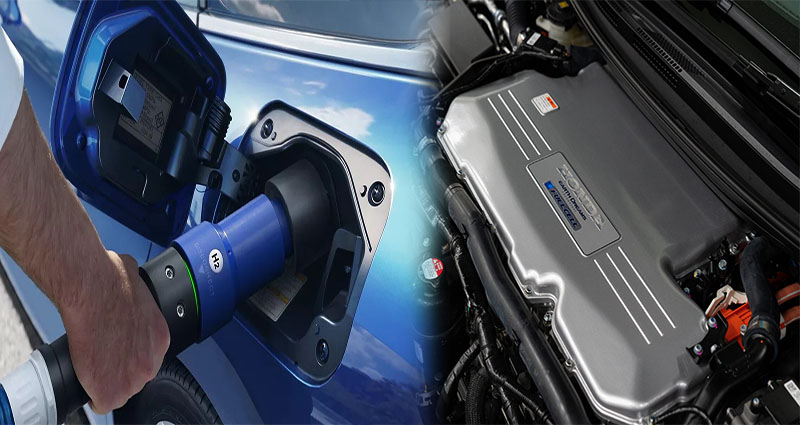Fuel Cell Electric Vehicles (FCEVs) are emerging as a promising alternative to traditional petrol and diesel-powered vehicles. Powered by hydrogen fuel cells, FCEVs offer zero emissions, extended driving range, and fast refueling times, making them a viable solution for sustainable transportation. Let’s delve deeper into the world of FCEVs and explore their benefits and challenges.
What Are Fuel Cell Electric Vehicles (FCEVs)?
FCEVs are vehicles that use hydrogen fuel cells to power an electric motor, offering a clean and efficient form of transportation. In an FCEV, hydrogen gas is supplied to the fuel cell, which combines it with oxygen from the air to generate electricity. This electricity then powers the electric motor, propelling the vehicle forward.
The Benefits of Fuel Cell Electric Vehicles (FCEVs)
- Zero Emissions: FCEVs emit only water vapor as a byproduct of the chemical reaction in the fuel cell. This makes them a truly zero-emission vehicle, contributing to improved air quality and reduced greenhouse gas emissions.
- Extended Driving Range: FCEVs offer an extended driving range compared to battery electric vehicles (BEVs). Hydrogen fuel cells provide a high energy density, allowing FCEVs to travel longer distances without needing to recharge.
- Fast Refueling Times: Unlike BEVs that require hours to recharge their batteries, FCEVs can be refueled with hydrogen in a matter of minutes. This fast refueling time makes FCEVs more convenient and allows for longer trips without significant delays.
- Versatility: FCEVs can be used across various vehicle types, including cars, buses, and trucks. This versatility makes them suitable for a wide range of applications and contributes to the overall adoption and growth of hydrogen fuel cell technology.
The Challenges of Fuel Cell Electric Vehicles (FCEVs)
- Hydrogen Infrastructure: One of the major challenges for FCEVs is the limited availability of hydrogen refueling stations. A robust hydrogen infrastructure is essential to support the widespread adoption of FCEVs, and significant investment is needed to expand the network.
- Cost: FCEVs are currently more expensive than traditional petrol vehicles due to the cost of fuel cell technology and the limited production scale. However, as the technology advances and production volumes increase, costs are expected to decline.
- Hydrogen Production: The production of hydrogen for FCEVs can still be energy-intensive and may be dependent on fossil fuels. However, advancements in renewable hydrogen production methods, such as electrolysis powered by renewable energy sources, offer a cleaner and more sustainable solution.
Fuel Cell Electric Vehicles (FCEVs) present a promising solution for sustainable transportation, offering zero emissions, extended driving range, and fast refueling times. While challenges such as hydrogen infrastructure and cost remain, ongoing advancements in technology and increasing support for hydrogen fuel cell technology are expected to address these barriers. As we strive for a greener future, FCEVs have the potential to play a significant role in reducing emissions and transitioning to a more sustainable transportation system.





